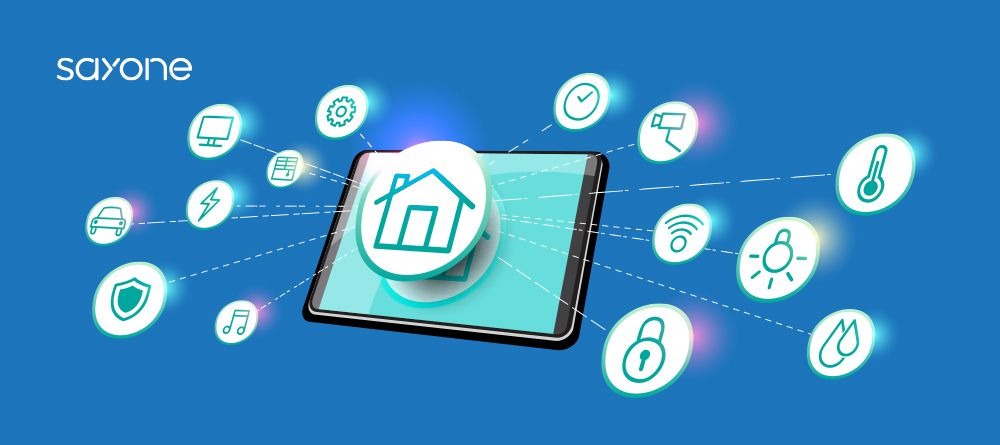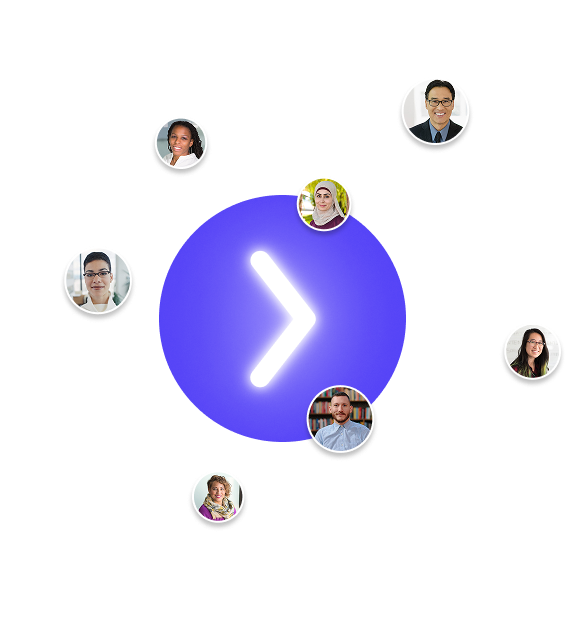
Subscribe to our Blog
We're committed to your privacy. SayOne uses the information you provide to us to contact you about our relevant content, products, and services. check out our privacy policy.

Jibu JamesMarch 27, 20236 min read

Generating table of contents...
IoT and mobile app development complement one another and form the perfect fit. These technologies can be fruitfully used to coexist together and allow for smooth interactions between humans and machines. Simultaneously, the icing on the cake is that the combination helps to elevate business efficiency and the user experience of the process.
The global IoT market is predicted to grow rapidly to nearly USD 2500 billion by the end of the decade. This growth will naturally provide opportunities for growth in the IoT mobile app development and IoT mobile app development consulting spheres.
Different industries are striving for complete digital transformation, so the demand for smart connected devices is on the rise.

IoT currently has a huge market in terms of devices used for bettering the performance and production capacities of enterprises. This has created a large market for mobile app development services supporting industrial IoT solutions. In a majority of cases, connected machines require proprietary software so that they can function without any hurdles.
Read our blog: Top 10 Challenges Faced in Mobile Application Development
Mobile IoT-based apps can be used for various functions such as streamlining asset tracking, enhancing predictive maintenance, and monitoring inventory management and supply chain monitoring.
Healthcare is a niche that attracts mobile app development. With an increase in the adoption of IoMT technologies, both patients and professionals in the healthcare sector are turning to mobile apps. When worked together, they help to enhance medical treatment outcomes, patient experience, and overall efficiency. This is also a good time to leverage the use of mobile technologies, medical wearable devices and biosensors.
Download our eBook for FREE “Global Software Development Rates – an Overview”.
With the earth bursting at its seams, it’s more important than ever to help to reduce the challenges that the agriculture sector is currently facing. IoT sensors and suitably paired mobile apps can help to monitor the health of the soil, and the agricultural field crops, manage greenhouses, and improve livestock. These apps can also help to address environmental issues and optimize the resources present.
The use of sensors, cameras, and beacons has brought about sea changes in the retail industry Mobile app development in the retail sector is currently directed towards bettering customer experience and driving up revenues. IoT mobile apps in this sector can help to shorten checkout queues, analyze and forecast customer data (in real-time), and asset tracking.
Read our blog: The Role of Blockchain in Mobile App Development
Transportation and logistics is yet another sector that benefits from the use of mobile IoT app solutions. From efficient route planning to monitoring cross-border fleets, there are many uses that these solutions can be put to. Transport companies can monitor temperature and humidity and such other parameters that can be used to keep goods from spoilage.
Additionally, for those looking to enhance their logistics and route planning further, considering an Excel route planner can be highly beneficial. Such tools can provide advanced capabilities for route optimization, helping transport companies save time and resources. To delve deeper into this topic and explore more insights, you can check their blog for more information on how Excel route planners can revolutionize your transportation and logistics operations.
The automotive industry can use a combination of these two technologies to create mobile IoT app solutions that can collect data, control air quality within cars, monitor tire pressure and temperature, and determine tread wear. Other mobile apps can provide data related to traffic, road conditions, and driving behavior as part of navigation and telematics systems.
This sector comprises wearables for everyday use, tactical gear, and smart home devices.. All these connected devices require intuitive and user-friendly intuitive apps. Some emerging sectors are outdoor and landscaping appliances.
Download our eBook for FREE “How to Optimize Your UI for Different Devices”.
Mobile apps play a vital role in IoT infrastructure. They allow end-users to interact with sensors to send commands, configure connected devices and transfer and analyze data. Here the requirement is seamless communication in IoT systems that often rely on a specific technology.
Mobile app connectivity generally relies on Wi-Fi, 4G/5G, NFC, and Bluetooth technologies. With IoT solutions, developers should work to integrate apps, with gateways/standalone devices and incorporate the essential communication protocols and standards.
With the rising number of connected devices, it is important to guard the huge amount of data that is generated, processed, and transmitted among these devices. There is a need for enhanced security measures to protect this data. Mobile IoT apps should, therefore, comply with these security standards.
Looking for web or mobile app development services? Call us today!
The IoT mobile app development team should use advanced encryption technologies and authentication procedures. The use of AI, ML, and Big Data can also help to mitigate the risks of cyber-attacks.
The huge amount of data that will be generated by IoT-connected devices have to be stored and handled properly. Mobile IoT app solutions have to be scalable and capable of handling this data load
IoT solutions also have to use edge platforms and computing applications for processing and updating data that has been stored in the cloud hitherto. You may not need large cloud capacities if you have this facility. These apps can perform faster and decrease latency.
Because IoT technologies are complex and components of the system are varied, the UX/UI design of a mobile IoT app would be significantly different from the regular apps. IoT also has multiple devices with different interfaces that interact with one another and with end-users.
Therefore, the IoT app design has to provide a seamless experience with the app and across the entire IoT ecosystem. Also, UX/UI design should be intuitive and make users feel comfortable while they interact with smart devices, even if for the first time.
Get in touch with us for a FREE consultation!
With the rapid evolution of the IoT market and the number of smart devices, there are many opportunities for IoT mobile app development to find new niches. When stepping into an IoT project, ensure that your team understands the design, connectivity, security, and storage requirements of mobile IoT products.

We're committed to your privacy. SayOne uses the information you provide to us to contact you about our relevant content, products, and services. check out our privacy policy.

About Author
Jibu James is the Team Lead at SayOne Technologies. He is passionate about all things related to reading and writing. Check out his website or say Hi on LinkedIn.

We collaborate with visionary leaders on projects that focus on quality